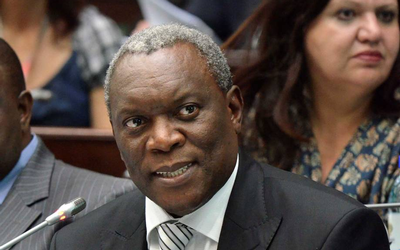TELKOM and the state-owned Broadband Infraco are in discussions over possible collaboration as part of the government’s restructuring of state entities to remove duplication.
In an interview with Business Day, Minister of Telecommunications and Postal Services Siyabonga Cwele said that as part of a rationalisation process, Telkom and Broadband Infraco were looking at how they could co-operate on infrastructure projects.
For Broadband Infraco, the "rationalisation is urgent", he said.
Last year, Mr Cwele advised the struggling Broadband Infraco to scale down noncritical projects so as to continue as a going concern.
Broadband Infraco has been underperforming for years and last year asked the government for R1bn funding.
The companies have to report back to the minister at the end of next month.
Other entities within the department such as Sentech, the State Information Technology Agency and the Universal Services and Access Agency of SA will also look at removing overlaps, especially around infrastructure.
Mr Cwele said though the private sector had expressed interest in Broadband Infraco, it did not want to pay for the full value of the company and wanted the government to continue subsidising it.
Broadband Infraco has a 14,000km footprint of fixed-line infrastructure. Telkom has more than 147,000km of fibre.
Telkom spokesperson Jacqui O’ Sullivan said the group was "always looking for ways to collaborate within the industry. But any such collaboration would have to be in a manner that added value to the business."
Speculation is that Broadband Infraco could operate as a subsidiary of Telkom, working closely with the listed entity’s wholesale subsidiary Openserve, or form an infrastructure-related joint venture.
Mr Cwele has emphasised the need for a one-stop shop for network infrastructure so that providers would not have to invest in their own networks.
Operators would then have fewer barriers to entry, could reduce prices, and compete on services.

COLLABORATION: Telecommunications and Postal services Minister Siyabonga Cwele. Picture: TREVOR SAMSON
TELKOM and the state-owned Broadband Infraco are in discussions over possible collaboration as part of the government’s restructuring of state entities to remove duplication.
In an interview with Business Day, Minister of Telecommunications and Postal Services Siyabonga Cwele said that as part of a rationalisation process, Telkom and Broadband Infraco were looking at how they could co-operate on infrastructure projects.
For Broadband Infraco, the "rationalisation is urgent", he said.
Last year, Mr Cwele advised the struggling Broadband Infraco to scale down noncritical projects so as to continue as a going concern.
Broadband Infraco has been underperforming for years and last year asked the government for R1bn funding.
The companies have to report back to the minister at the end of next month.
Other entities within the department such as Sentech, the State Information Technology Agency and the Universal Services and Access Agency of SA will also look at removing overlaps, especially around infrastructure.
Mr Cwele said though the private sector had expressed interest in Broadband Infraco, it did not want to pay for the full value of the company and wanted the government to continue subsidising it.
Broadband Infraco has a 14,000km footprint of fixed-line infrastructure. Telkom has more than 147,000km of fibre.
Telkom spokesperson Jacqui O’ Sullivan said the group was "always looking for ways to collaborate within the industry. But any such collaboration would have to be in a manner that added value to the business."
Speculation is that Broadband Infraco could operate as a subsidiary of Telkom, working closely with the listed entity’s wholesale subsidiary Openserve, or form an infrastructure-related joint venture.
Mr Cwele has emphasised the need for a one-stop shop for network infrastructure so that providers would not have to invest in their own networks.
Operators would then have fewer barriers to entry, could reduce prices, and compete on services.






















Change: -0.47%
Change: -0.57%
Change: -1.76%
Change: -0.34%
Change: 0.02%
Data supplied by Profile Data
Change: -1.49%
Change: 0.08%
Change: -0.47%
Change: 0.00%
Change: -0.04%
Data supplied by Profile Data
Change: -0.34%
Change: 0.03%
Change: -0.10%
Change: -0.22%
Change: -0.81%
Data supplied by Profile Data
Change: -0.28%
Change: -1.15%
Change: -0.07%
Change: -1.21%
Change: -0.22%
Data supplied by Profile Data